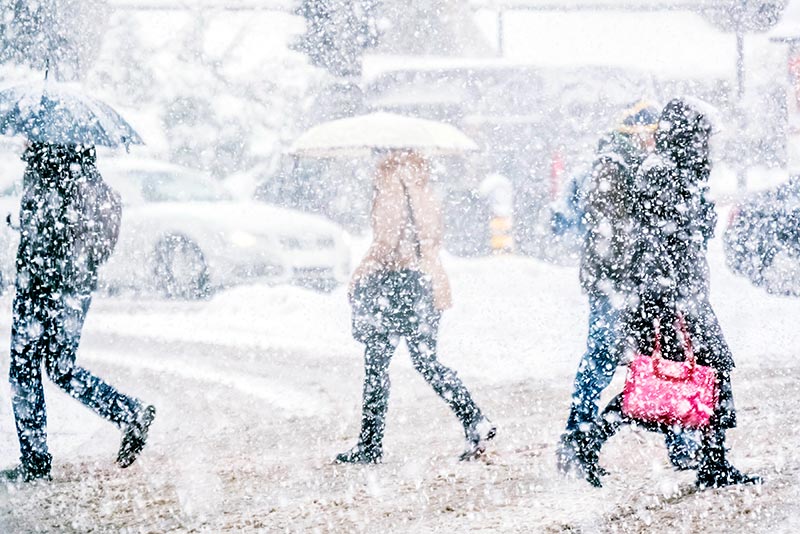
Cold weather has arrived in the Vancouver and Portland area – which for some means fun in the snow, or winter getaways. But for some folks, cold weather could pose health risks.
Staying warm in the winter is important for seniors’ health as the cold can make you ill. Older adults lose body heat faster than when they were younger.
But hunkering down through cold weather gives an opportunity to relax or connect. It’s also best to have loved ones or medically trained assistants help prevent cold weather-related ailments.
In this post, we’re sharing how seniors can beat the cold this winter with indoor safety tips.
Stay Inside for Warmth
Avoiding the elements outside is the best way to beat the cold, but it can still make its way indoors. Here are winter safety tips to take while you’re staying warm inside your home:
Set your thermostat to at least 68-70°F. Although space heaters and fireplaces are great options for indoor heating (as alternatives to central heating systems), they’re also fire hazards. With some additional help, take extra precautions for fire prevention. This also goes for gas, charcoal, hibachi, and propane heating (or cooking).
Listen for winter storm forecasts and other information from TV news, online, or social media. If a winter storm is announced, prepare for closures and freezing weather.
Make sure your blinds and curtains are closed. With some help, check for drafts from windows and doors to cover. Outside walls, attics, and crawl spaces should all be insulated.
Eat enough calories to help regulate your body temperature. And if you drink alcohol, drink moderately (or none at all). Alcohol can deregulate your body temperature and could cause it to drop. It’s also important to not overexert yourself with unnecessary physical activity.
Dress warmly. – Cozying up with a blanket is great for those snowy or frigid days. And rather than one layer of heavy clothing, wear many layers of loose-fitting, lightweight, warm clothing. In case you’re outside, add those extra layers (mittens, caps, etc.) to block the wind chill.
Have others check on you regularly. It’s a great way to get loved ones to come over for a visit!
While practicing these tips, staying warm inside also gives you an opportunity to divulge in enjoyable indoor activities.
Signs to Watch Out for Hypothermia
Hypothermia is caused by blood arteries contracting from decreasing temperatures and winds, which makes it more difficult for oxygen to reach all parts of the body.
Seniors are more susceptible to this and other cold-related cardiovascular disorders because it’s more difficult to naturally keep warm with consistent blood circulation.
Here are signs to look at for with hypothermia:
- Pale skin
- Cold extremities (feet and hands)
- Body temperature below 96°
- Puffy or swollen face
- Uncontrollable shivering
- Slow or slurry speech
- Drowsiness
- Jerky arm or leg movements
- Slow heartbeat
- Shallow breathing
- Blacking out
- Slow or clumsy movement
- Confusion
Dial 9-1-1 immediately if someone is showing signs of hypothermia.
Is There Help for My Heating Bills in Clark County, WA?
If you or a loved one are having a hard time paying heating bills, there are some resources in Clark County, WA that can help: Clark Public Utilities – Home Energy Assistance Programs
Having a functional heating system in your home is a basic need, so don’t hesitate to reach out.
Beat the Cold this Winter in Vancouver, WA
Staying warm in the winter is not only comforting, but it’s also important to seniors’ health. Overall, it’s best to stay inside, but if outside, please take extra precautions with clothing and traveling.
There’s also assistance available if needed for those having trouble maintaining indoor heat in colder weather.
Have a safe and warm winter!
Are you seeking an opening at a retirement center in the Vancouver, WA area? Learn how Knights of Pythias Active Retirement Center can help by calling
360-696-4375 or visiting https://koprc.com/.
